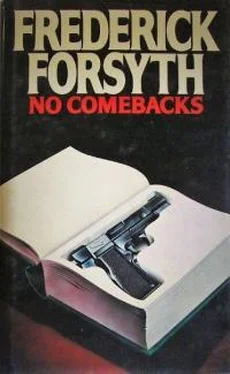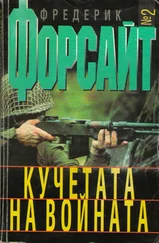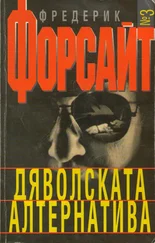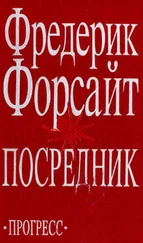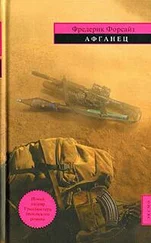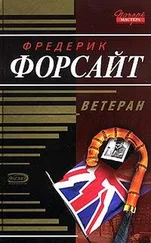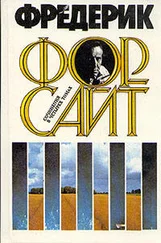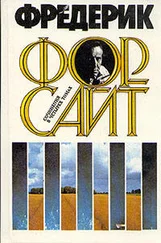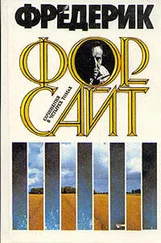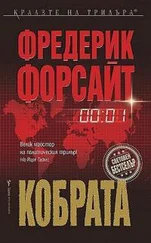.. commend this our brother Timothy John Hanson to Thy everlasting care, through Jesus Christ, Our Lord, Amen.'
With a start Pound realized it was over. The chaplain was looking at him expectantly. He nodded to the Armitages. One went round each of the fishermen holding the planks steady and placed a hand on the rear of the coffin. Pound nodded to the men. Slowly they eased their end of the planks upwards. The other end dipped to the sea. At last the coffin moved. Both Armitages gave a shove. It scraped once, then slid fast off the other end. The boat rocked. The coffin hit the side of a wave with more of a thud than a splash. And it was gone. Instantly. Pound caught the eye of the skipper in the wheelhouse above. The man raised a hand and pointed back towards the way they had come. Pound nodded again. The engine note rose. The large plank was already inboard and stowed. The Armitages and the chaplain were hurrying for cover. The wind was rising.
It was almost dark when they rounded the corner of the mole at Brixham and the first lights were flickering in the houses behind the quay. The chaplain had his own small car parked nearby and was soon gone. Pound settled with the skipper, who was happy to make as much in an afternoon as in a week after mackerel. The undertaker's men waited with the limousine and a worse-for-wear Tarquin Armitage. Pound elected to let them have the car. He preferred to return to London by train and keep his own company.
'You'll get on with the calculation of the estate immediately,' insisted Mrs Armitage shrilly. 'And the filing of probate. We've had enough of all this play-acting.'
'You may be confident I shall waste no time,' said Pound coldly. 'I shall be in touch.' He raised his hat and walked towards the station. It would not, he surmised, be a long business. He knew already the extent and details of Timothy Hanson's estate. It was bound to be in perfect order. Hanson had been such a very careful man.
It was not until mid-November that Mr Pound felt able to communicate with the Armitages again. Although as sole beneficiary it was only Mrs Armitage who was invited to his office off Gray's Inn Road, she turned up with husband and son none the less.
'I find myself in something of a quandary,' he told her.
'What about?'
'Your late brother's estate, Mrs Armitage. Let me explain. As Mr Hanson's solicitor, I already knew the extent and location of the various assets comprising his estate, so I was able to examine each of them without delay.'
'What are they?' she asked brusquely.
Pound refused to be hurried or harried. 'In effect he had seven major areas that constituted his estate. Together they would account for ninety-nine per cent of what he owned. First there was the rare and precious coin dealership in the City. You may know it was a wholly-owned private company with himself as sole proprietor. He founded and built it up himself. He also owned, through the company, the building in which it is situated. He bought this, with a mortgage, shortly after the war when prices were low. The mortgage was long since paid off; the company owned the freehold and he owned the company.'
'What value would all this have?' asked Armitage senior.
'No problem there,' said Pound. 'With the building, the dealership, the stock, the goodwill and the unexpired portions of the leases of the other three tenant companies in the building, exactly one and a quarter million pounds.'
Armitage junior whistled through his teeth and grinned.
'How do you know so exactly?' asked Armitage.
'Because he sold it for that sum.'
'He what…?'
'Three months before he died, after brief negotiations, he sold the company lock, stock and barrel to a rich Dutch dealer who had wanted it for years. The sum paid was what I have mentioned.'
'But he was working there almost until he died,' objected Mrs Armitage. 'Who else knew about this?'
'No one,' said Pound. 'Not even the staff. In the sale deal the conveyancing of the building was performed by a provincial lawyer who quite properly said no more about it. The remaining part of the sale was a private treaty between him and the Dutch purchaser. There were conditions. The staff of five keep their jobs; and he personally was to remain on as sole manager until the end of this year or his death, whichever should be the sooner. Of course, the buyer thought this was a mere formality.'
'You have seen this man?' asked Mrs Armitage.
'Mr de Jong? Yes, a reputable Amsterdam dealer in coins. And I have seen the paperwork. It is all perfectly in order, absolutely legal.'
'So what did he do with the money?' asked Armitage senior.
'He banked it.'
'Well, then, no problem,' said the son.
'His next asset was his manor in Kent, a lovely property, set in twenty acres of parkland. Last June he took out a ninety-five per cent mortgage on the property. At the time of his death he had only paid off one quarterly instalment. On his death the building society became a primary creditor and now has taken possession of the title deeds. Again, perfectly legal and proper.'
'How much did he get for it, the manor?' asked Mrs Armitage.
'Two hundred and ten thousand pounds,' said Pound.
'Which he banked?'
'Yes. Then there was his apartment in Mayfair. He sold this by private treaty about the same time, employing yet another lawyer for the deed of sale, for a hundred and fifty thousand. This too was banked.'
'That makes three assets. What else?' demanded the son.
'Apart from the three properties he had a valuable private coin collection. This was sold piecemeal, through the company, for just over half a million pounds, over a period of several months. But the invoices were kept quite separate and were found in his safe at the manor house. Perfectly legitimate and every sale carefully noted. He banked each sum of money following each sale. His broker, on instruction, realized his entire portfolio of stocks and shares before the first day of August. Last but one, there was his Rolls Royce. He sold it for forty-eight thousand and leased another one instead.
The leasing company has repossessed this vehicle. Finally he had various deposit accounts in various banks. His total estate as I have been able to trace it, and I am convinced there is nothing missing, amounts to a shade over three million pounds.'
'You mean,' said Armitage senior, 'that before he died he called in and realized every single asset he possessed, converted it to cash and banked it, without telling a soul or raising any suspicions in those who knew him or worked for him?'
'I couldn't have put it better myself,' conceded Pound.
'Well, we wouldn't have wanted all that junk anyway,' said Armitage junior. 'We'd have wanted it realized. So he spent his last months doing your job for you. Tot it all up, settle the debts, assess the revenue and let's have the money.'
'I'm afraid I can't,' said Mr Pound.
'Why not?' There was a shrill edge of anger in Mrs Armitage's tone.
'The money he deposited for all these assets …'
'What about it?'
'He withdrew it?'
'He what…?'
'He put it in. And he took it all back out again. From a score of banks, in tranches, over a period of many weeks. But he got it out all right. In cash.'
'You can't withdrew three million pounds in cash,' said Armitage senior in disbelief.
'Oh, yes, you can,' said Pound mildly. 'Not all at once of course, but in sums up to fifty thousand pounds from major banks, with prior notice. Quite a lot of businesses operate with large floats of cash. Casinos, betting shops for example. And dealers in the second-hand market of almost anything…'
He was cut off by the growing hubbub. Mrs Armitage was pounding the table with a plump fist; her son was on his feet waving a forefinger down the table; her husband was seeking to adopt the posture of a judge about to deliver a particularly severe sentence. They were all shouting at once.
Читать дальше
